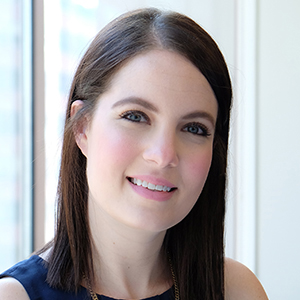As the country grapples with our over-reliance on the police and the deep harm it has caused, particularly to Black people, two things have been at the top of my mind lately.
The first is a question that has become a common retort to the call to defund police departments — “But what about rape?!” While often asked in good faith, this question misunderstands how ill-equipped the criminal legal system is to meet survivors’ needs. Most sexual assault is never reported, often because survivors distrust or fear the police, or believe that the police can’t or won’t do anything to help. And why should they, when time and time again, the police fail to take their reports seriously, investigate the allegations, test the evidence collected from rape kits, or follow through on their obligation to help survivors get justice. This mistrust is heightened for Black survivors and other survivors of color, whose experiences of being surveilled, harassed and harmed by the police make them especially wary of police involvement.
This question also ignores the ways law enforcement officers often actively harm survivors, whether as perpetrators of sexual assault themselves or as actors in a system that unnecessarily sweeps so many survivors up into its net. Sexual violence is the second most frequently reportedform of police misconduct, and many police departments have done next to nothing to address the prevalence of offenders within their ranks.
Beyond this direct form of violence, the legal system often harms survivors by criminalizing them instead of supporting them. Survivors can face subpoenas, contempt charges and even jail time for failing to cooperate with law enforcement or refusing to testify against the abuser in court, despite having very legitimate reasons for doing so. Most often it is those survivors from communities that are already overcriminalized — Black, transgender, those with low incomes — who are disproportionately punished.
I’ve also been thinking more and more in this moment about the creeping increase in laws and policies that criminalize pregnant people. As advocates for reproductive health and rights, we at the National Partnership have long known that abortion access is directly tied to criminalization — from the pre-Roe era where abortion was illegal to the current spate of abortion restrictions that work by imposing fines or jail time on providers of such care.
The anti-abortion ideology of the fetus as a separate person has become more and more prominent, seeping into so many other areas of the law — and women and pregnant people are being criminalized as a result. From self-managing one’s own abortion, to suffering a miscarriage, to refusing or consenting to receive medical treatment, to grappling with substance use — pregnant people are increasingly being arrested, prosecuted, and punished.
This criminalization results in stigmatization and erodes trust in relationships with health care and social service providers and systems. These laws cut people off from important avenues for care. Whether it is the ability to have an abortion on your own terms or to seek or refuse medical care during a pregnancy, people should be able to access what they need without fearing that they’ll be prosecuted. And yet again, evidence shows that police officers and prosecutors, acting based on systemic and deeply ingrained racism and stereotypes, are far more likely to enforce these laws against women of color and low income women — so it’s the people already disproportionately harmed by policing and least likely to have access to health care services who bear the brunt of this over-criminalization.
Both the criminalization of sexual assault survivors and of pregnant people arise from the desire to control women’s bodies, particularly women of color. These forms of criminalization threaten people’s bodily autonomy and rights and ignore the material realities and circumstances of people’s lives. In this moment of reckoning with the role of police in our society, we must also confront how survivors and pregnant people — and especially Black women, women of color, low-income women, and transgender and non-binary people — are victimized twice. Arrested, detained and even prosecuted when they should be supported and offered the health care and economic resources they need to thrive.


